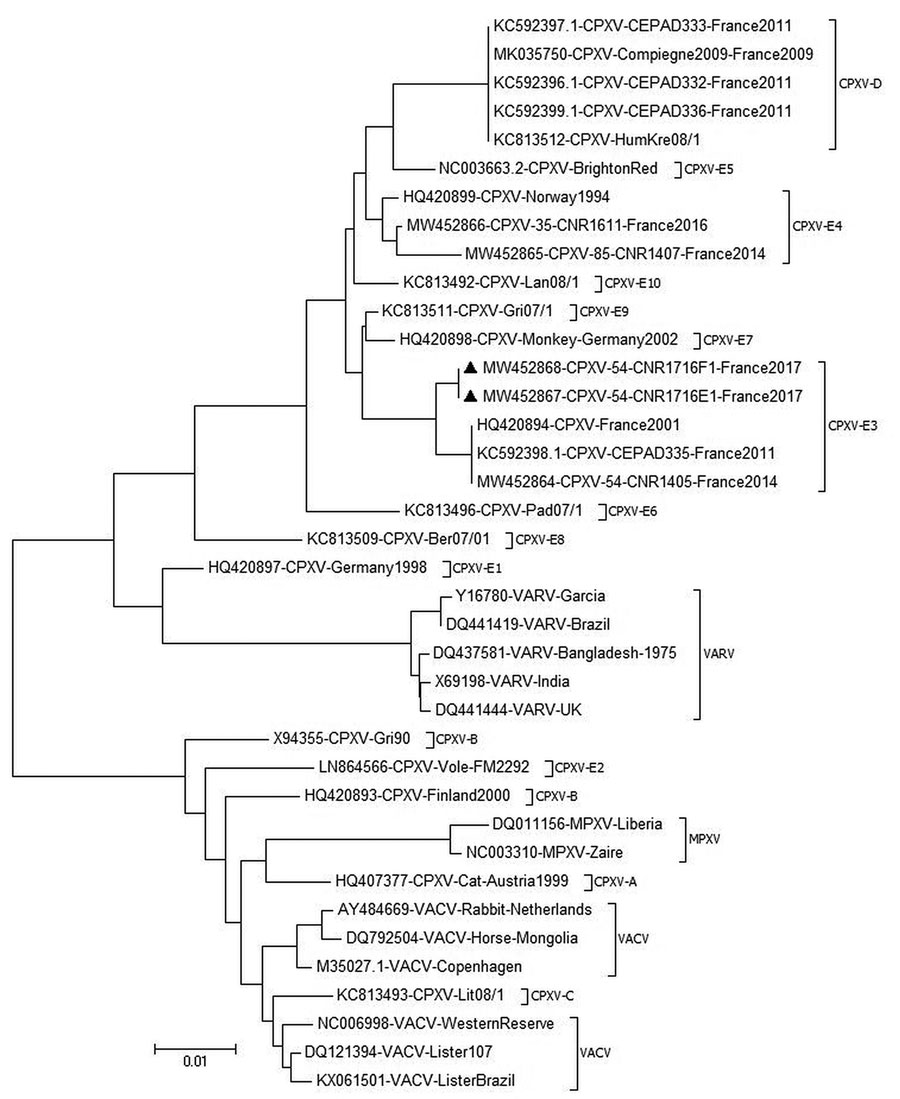Volume 27, Number 10—October 2021
Research
Fatal Cowpox Virus Infection in Human Fetus, France, 2017
Figure 4

Figure 4. Phylogenic tree of CPXV collected from a woman in France (black triangles) and reference viruses. The tree was generated by using the maximum-likelihood method based on the nucleotide sequence of the A56R gene. The neighbor-joining algorithm was used to generate the initial tree. Evolutionary analyses were conducted in MEGA6 (https://www.megasoftware.net). GenBank accession numbers are provided. Scale bar indicates nucleotide substitutions/site. CPXV, cowpox virus; MPXV, monkeypox virus; VACV, vaccinia virus; VARV, varicella virus.
1These authors are co–first authors.
Page created: July 30, 2021
Page updated: September 19, 2021
Page reviewed: September 19, 2021
The conclusions, findings, and opinions expressed by authors contributing to this journal do not necessarily reflect the official position of the U.S. Department of Health and Human Services, the Public Health Service, the Centers for Disease Control and Prevention, or the authors' affiliated institutions. Use of trade names is for identification only and does not imply endorsement by any of the groups named above.